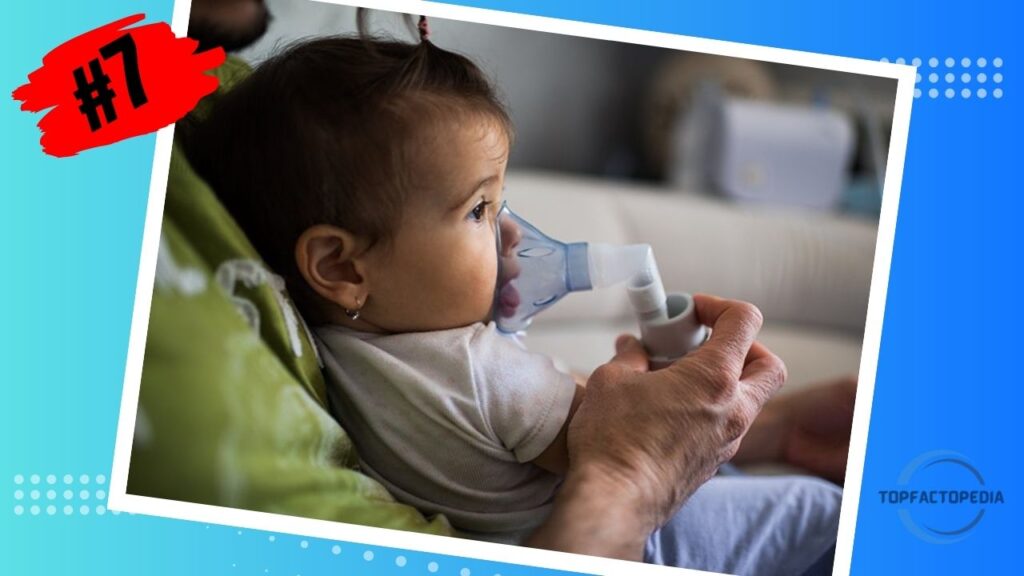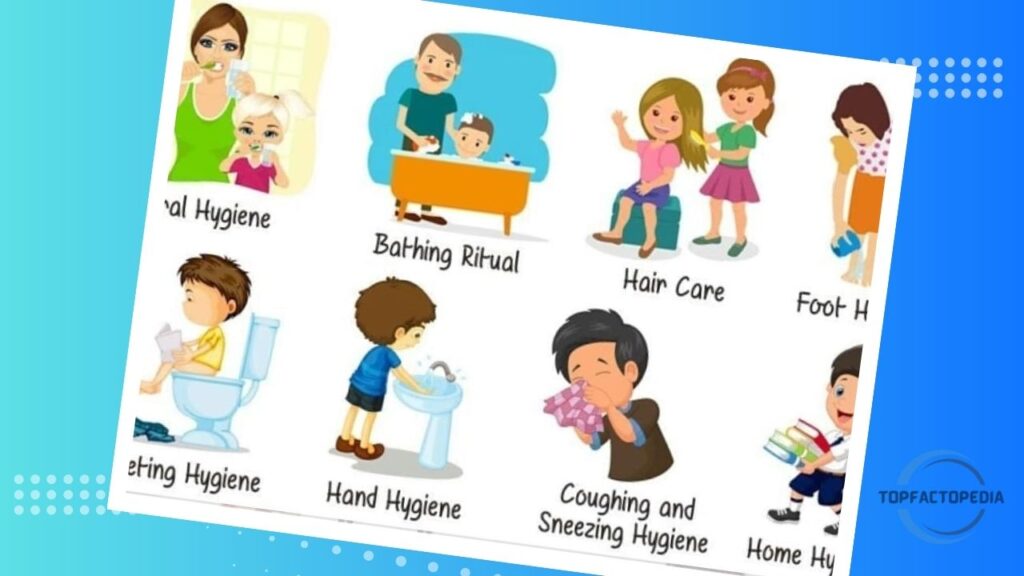
Introduction
Any new mother will tell you that the moment her baby is born is one of the most exhilarating and joyful times of her life. However, in order to ensure the health of newborn babies, it is absolutely necessary to be familiar with the most common problems of newborn that they may experience. In this article, we will discuss some of the more common challenges that newborns experience, as well as provide mothers with some helpful insights and pointers. You will be able to confidently navigate the early stages of your baby’s life with ease and ensure their optimal health and happiness if you understand these challenges and overcome them as they arise.
What Are the Most Common Problems of Newborn Babies
Babies who have just been born are extraordinarily vulnerable and require additional care. Let’s look at some of the most common problems that they might run into, as well as some effective ways to solve those problems.
1. Jaundice: A Common Condition

Jaundice is an extremely common condition that affects newborns and is characterised by a yellowing of the skin as well as the eyes. This condition is brought on by an abnormally high level of the yellow pigment bilirubin, which is produced in the body as a byproduct of the breakdown of red blood cells. Even though it clears up on its own in the majority of cases, severe manifestations of the condition might call for treatment like phototherapy. It is essential that you keep an eye on how your infant eats and seek professional help if the symptoms continue.
2. Diaper Rash: The Uncomfortable Irritation

Rashes caused by diapers are extremely common and will affect almost all infants at some point in their lives. It is caused by prolonged contact with wet diapers, which irritates the skin and causes the condition. Changes in diapers on a consistent basis, gentle washing with a gentle soap, and the application of a diaper rash cream that acts as a protective barrier can all help prevent and treat diaper rash.
3. Feeding Difficulties: The Hungry Tummy

Feeding can be difficult for newborns for a variety of reasons, including difficulty latching on or an inadequate supply of breast milk. In order to address these concerns in an efficient manner, you should seek guidance from a lactation consultant or your healthcare provider. It is possible to improve the experience of breastfeeding for both the mother and the child by creating an atmosphere that is cosy and calm during feeding time.
You May Also Like: Most Common Food Frauds: How Famous Companies Scam the Whole World
4. Sleep Disturbances: The Elusive Rest

The majority of newborns experience some form of sleep disruption, which can leave their parents feeling worn out. Over time, you may be able to improve your baby’s sleeping patterns by instituting a regular sleep routine, establishing a calming sleep environment, and putting into practice techniques that are calming.
5. Colic: The Mystery Crying Spells

Colic is defined as prolonged and unexplained crying in an infant who would otherwise be considered healthy. Colic typically disappears after a few months have passed, despite the fact that its root cause is still a mystery. During episodes of colic, utilizing calming techniques like swaddling, gentle rocking, and the use of white noise can be very helpful in providing relief.
6. Spit-up and Reflux: The Messy Moments

When babies regurgitate their feeds, they frequently experience a number of unpleasant side effects, including spitting up and reflux. To reduce the likelihood of these complications, it is critical to burp your child frequently both during and after each feeding. Talk to your child’s pediatrician if he or she exhibits any signs of distress, as this may require further evaluation and instruction.
7. Common Respiratory Conditions

Because immune systems of newly born babies are not fully developed, newborns have a higher risk of developing respiratory conditions. It is not uncommon for people to suffer from stuffy noses; however, nasal congestion can be alleviated by using a bulb syringe or saline drops. In addition to being susceptible to catching colds, infants frequently develop coughs.
It is possible to help prevent respiratory infections in a baby by ensuring the environment is clean, washing hands frequently, and keeping the baby away from people who are sick. On the other hand, immediate medical attention needs to be sought out in the event that the infant displays signs of respiratory distress such as rapid breathing or wheezing.
You May Also Like: The Most Dangerous Toys of All Time That Are Banned
8. Umbilical Cord Issues

The stump of the umbilical cord needs to be properly cared for until it falls off, which typically occurs between one and three weeks after delivery. It is essential to keep the area clean and dry if you want to avoid getting an infection. On the other hand, the presence of redness, swelling, or discharge may point to the presence of an infection; in this case, a medical professional should be consulted. Umbilical hernia, also known as a bulge near the navel, is another common issue that typically goes away on its own as the baby continues to develop.
9. Temperature Regulation

As a result of their inability to properly regulate their own body temperature, newborns are particularly susceptible to both overheating and chills. It is of the utmost importance to dress them appropriately for the temperature of the environment, taking care not to overdress or underdress them. It is possible to help ensure the baby’s comfort by maintaining a room temperature that is comfortable and by using blankets that are not too heavy.
10. Infections and Illnesses

Because their immune systems are still developing, newborns are at a greater risk of contracting infections and illnesses. Thrush is a common yeast infection that can make it difficult to eat. Thrush can also make it difficult to speak. It will not be possible to solve this problem without receiving treatment with antifungal medication. It is possible to avoid getting a diaper infection by changing diapers frequently and practising good hygiene.
Diaper infections are characterized by redness and irritation in the diaper area. Fever and other common illnesses, such as colds and the flu, are also possible for newborns to experience. Receiving prompt medical attention and adhering to the recommendations made by the healthcare provider are both essential components in the management of these conditions.
Safety Tips to Avoid Common Problems of Newborn Babies
The following is a list of safety advice that should be followed to help prevent common issues and to ensure the well-being of newborn babies:
Importance of Regular Check-ups

It is essential to have the baby examined at regular intervals by a healthcare provider in order to keep track of the baby’s growth and development. These visits also afford the possibility of addressing any concerns or questions that the mother might have at that time. During these checkups, the infant will receive immunizations and vaccinations, which will protect them from a variety of illnesses.
Parental Concerns and Support

Being a new parent can be extremely overwhelming, and it’s completely normal to experience feelings of concern and anxiety as a result. The reassurance and direction that can be gained from seeking support from family, friends, or parenting groups can be obtained by asking for their assistance. When in doubt, it is essential to consult with healthcare professionals in order to address any concerns as soon as possible.
You May Also Like: 10 Most Mysterious Sea Creatures Found in Deep Oceans
Baby Safety Tips

It is of the utmost significance to make certain that the well-being of the infant is protected. The risk of Sudden Infant Death Syndrome (SIDS) can be reduced by employing safe sleeping practises, such as securing the infant to their back in their crib at night and avoiding the use of pillows or soft bedding. The likelihood of an accident occurring in the home can be reduced by taking precautions such as installing stair gates, baby-proofing electrical outlets, and putting small items out of reach.
Maintaining Hygiene and Cleanliness

It is essential for the health of the baby to practise correct hygiene and cleanliness at all times. It is possible to reduce the risk of the baby developing skin problems by giving them gentle baths with baby-safe cleansers and regularly moisturising their skin. Changing diapers in an appropriate manner, which includes thoroughly cleaning the diaper area and applying diaper cream as necessary, lowers the likelihood of developing a diaper rash as well as an infection.
Conclusion
Mothers gain the ability to provide the best possible care for their children when they have knowledge of the most common health issues affecting newborn babies. Having an understanding of these issues equips new mothers with the confidence they need to navigate the early days of parenthood. These issues range from skin problems to digestive problems, sleep difficulties to feeding difficulties, respiratory conditions to infections. It is possible for mothers to ensure that their newborns will thrive and grow by seeking the appropriate support, maintaining proper hygiene, putting safety measures into practice, and remaining proactive in monitoring the baby’s health.
Few More Queries
- How long do common newborn rashes last?
Most common newborn rashes, such as baby acne or milk rash, usually resolve within a few weeks without any treatment. However, if the rash persists or worsens, it’s advisable to consult a healthcare provider.
- When should I be concerned about my newborn’s constipation?
If your newborn experiences severe constipation, has hard stools that are difficult to pass, or shows signs of distress, it’s important to seek medical advice. A healthcare provider can offer guidance on managing constipation in newborns.
- Can I use over-the-counter creams for diaper rash?
Over-the-counter creams specifically formulated for diaper rash can be used after consulting with a healthcare provider. It’s important to follow the instructions and apply the cream as directed.



